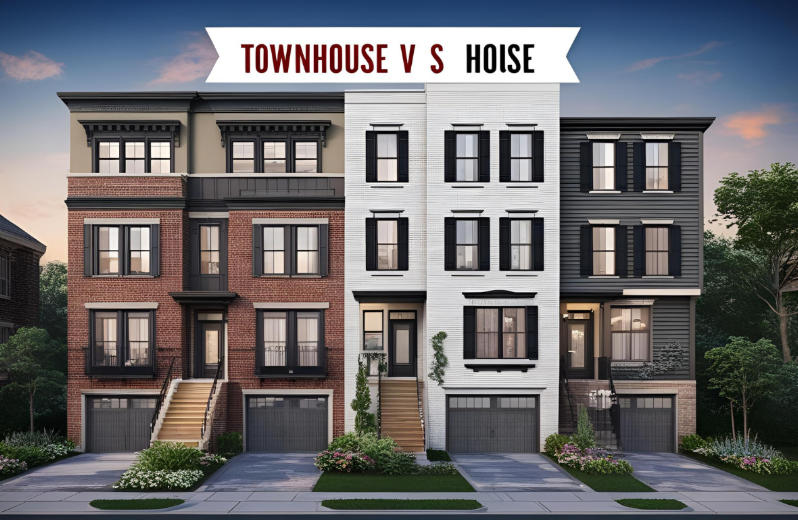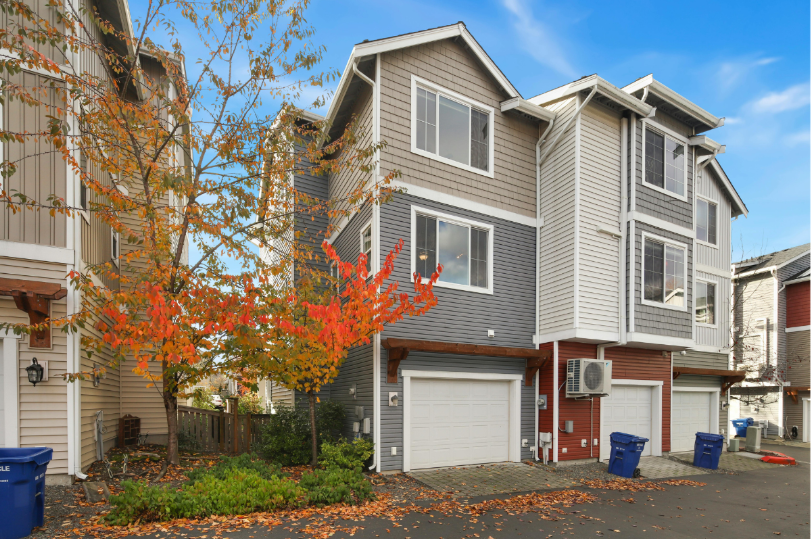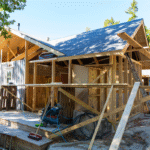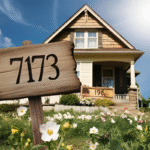Deciding between a townhouse and a house can feel overwhelming, especially with Australia’s property market offering more diverse options than ever before. Whether you’re a first-time homebuyer, a young family seeking a community lifestyle, or an investor exploring property types, understanding the key differences between townhouses and houses can help you make the best choice for your needs.
This guide breaks down everything you need to know, from structure and ownership to lifestyle factors and investment potential, so you can confidently choose the right property.
What is a Townhouse?
Structure and Layout
A townhouse is a multi-level property typically built in rows with shared walls on one or both sides. These homes often feature modern layouts, such as open-plan living spaces, multiple bedrooms, and small outdoor courtyards or balconies. Townhouses are designed to maximize space, making them a smart option for urban and high-demand areas.
Ownership Model
When you purchase a townhouse, you generally own an individual property under a strata or community title. This means you own your home but share ownership of common areas like gardens, driveways, and amenities with the other residents. Homeowners are typically part of a homeowners association (HOA) or body corporate that oversees maintenance and sometimes enforces rules for the community.
Key Features of Townhouses
- Multi-story layouts with compact designs.
- Shared walls with neighboring homes.
- Small private yards or balconies.
- Access to community amenities, such as pools, gyms, or parks.
- Lower cost compared to detached houses in similar locations.
What is a House?
Detached and Freestanding
A house is a standalone property with no shared walls, offering greater privacy and space compared to other types of homes. Unlike townhouses or apartments, houses are detached and typically come with their own plot of land, which may include a backyard, front yard, or garden. This added outdoor space often provides more opportunities for customization, such as landscaping, building extensions, or creating recreational areas. Houses are ideal for those seeking independence, ample room for families, or the ability to make significant changes to their living environment.
Full Ownership
When you purchase a house, you typically own both the structure and the land it sits on, giving you full control over your property. This ownership provides significant flexibility for making renovations, landscaping your yard, or adding custom touches to create your perfect space. Unlike condos or apartments, there are no community rules to restrict your choices, and you don’t have to worry about shared ownership or spaces. Whether you want to build an extension, plant a garden, or repaint the exterior, owning a house allows you to make decisions that suit your lifestyle and vision without seeking approval from a third party.
Key Features of Houses
- Freestanding structure on its own land.
- Larger interior and exterior spaces, including gardens or yards.
- Complete privacy and independence.
- Greater freedom to modify and customize.
Key Differences Between Townhouses and Houses
Structure and Space
- Townhouses: These properties share walls with neighboring units and usually have smaller outdoor spaces like patios or balconies instead of large yards. Often part of planned communities, they may include shared amenities like parks or pools, with reduced maintenance responsibilities due to community services.
- Houses: Detached homes with larger living areas and private yards. With no shared walls, homeowners have full control over their property, making them ideal for those who want more space, outdoor activities, or the freedom to customize their home.
Privacy and Lifestyle
- Townhouses: Due to shared walls and close proximity to neighbors, townhouses typically offer less privacy. However, they are well-suited for people who prioritize community living, enjoy a neighborhood feel, and appreciate shared amenities like pools, gyms, or clubhouses. Townhouses often appeal to those seeking a balance between affordability and convenience in urban or suburban areas.
- Houses: With no shared walls and larger lot sizes, houses provide maximum privacy and personal space. This makes them perfect for families, pet owners, or anyone who values independence and quiet surroundings. Houses are ideal for those looking for more freedom to customize their property and enjoy a secluded lifestyle.
Maintenance Responsibilities
- Townhouses: Maintenance for shared areas like gardens, pathways, or driveways is usually handled by the HOA or body corporate, reducing the burden on homeowners. However, owners are still responsible for maintaining interiors and, in some cases, private courtyards or backyards. This shared setup makes townhouses appealing for those seeking convenience without the full workload of owning a home.
- Houses: Homeowners handle all maintenance and repairs, including the roof, walls, interiors, and outdoor spaces like gardens or fences. While this can be more demanding, it also offers complete control over the property, allowing for changes or improvements without HOA approval.
Costs and Affordability
- Townhouses: Townhouses are often more affordable than standalone houses, making them a great option for first-time buyers or those on a budget. Maintenance costs are lower since shared areas are managed collectively, though this usually involves paying strata or body corporate fees. These fees vary based on the services provided, so be sure to factor them into the overall cost.
- Houses: Houses generally cost more due to larger land size and added privacy. Homeowners also cover higher maintenance, utility, and landscaping expenses, as they’re fully responsible for the property. While pricier, houses offer more independence and flexibility to customize the space.
Investment Value
- Townhouses: Perfect for first-time investors due to their affordability and steady rental demand. Typically located in urban or suburban areas, they appeal to renters seeking a mix of convenience and value. Townhouses offer reliable rental yields without the higher costs of standalone homes.
- Houses: Freestanding homes offer strong long-term value thanks to land ownership, which tends to appreciate over time. Popular with families and those seeking privacy and space, houses attract renters and buyers willing to pay more for these benefits, despite the higher initial cost.
Amenities
- Townhouses: Often part of planned communities, townhouses offer shared amenities like pools, gyms, playgrounds, and community centers. This setup fosters a sense of community, perfect for those who enjoy socializing. However, they often come with HOA fees to maintain these amenities.
- Houses: Standalone houses don’t include shared amenities but offer the freedom to create private spaces like a garden, pool, or outdoor area. They’re ideal for those seeking privacy and the ability to fully customize their home. Houses also typically provide more indoor and outdoor space than townhouses.

Investment Analysis
Choosing between a townhouse and a house for your investment portfolio depends on your budget, financial goals, and target market.
Townhouses as Investments
- Affordability: The lower entry cost of townhouses compared to standalone houses makes them a more accessible option for young investors looking to enter the property market. This affordability often allows first-time buyers to start building equity sooner.
- Appeal to Renters: Townhouses are particularly attractive to tenants such as young professionals or small families due to their affordable rent. Many come with shared amenities like pools, gyms, or parks, offering added value and convenience without the higher costs associated with stand-alone homes.
- Urban Growth Potential: Located in medium-density areas near city centers, townhouses benefit from steady rental demand as urban living continues to grow. Their proximity to transport, schools, and workplaces makes them a desirable option for city-based renters, ensuring long-term investment potential.
Houses as Investments
- Long-Term Growth: Houses often appreciate more over time because they include land, which usually increases in value as housing demand grows. This makes them a reliable investment for steady financial growth.
- Wide Tenant Appeal: With more space, privacy, and customization options, houses attract a broad range of tenants, including families. This versatility makes them easier to rent and maintain occupancy.
- Resale Value: Houses tend to gain value faster due to their land component and growing market demand, offering investors better returns when selling.
Quick Stats
- Townhouses made up 19% of all single-family housing starts in 2025, reflecting a growing trend driven by their affordability and the increasing demand for urban living. This shift highlights the appeal of townhouses as a cost-effective option for those looking to own property in city-centered locations without the high price tag of standalone homes.
- Single-family houses, on the other hand, have historically shown higher long-term appreciation rates, making them a solid choice for those seeking reliable capital growth. Thanks to their larger lot sizes and greater privacy, houses continue to attract buyers looking for both comfort and long-term financial benefits.
Key Factors to Consider
When deciding between a townhouse and a house, here are some factors to weigh carefully:
Personal Preferences and Lifestyle
Do you value a sense of community with shared spaces and close neighbors, where connecting with others is easy? Or do you prefer the privacy and independence of a detached property, with more personal space and freedom to create your own sanctuary? The choice often depends on your lifestyle and preferences, including how much interaction you want with neighbors, the maintenance you’re comfortable with, and your vision of an ideal home. Considering these factors can help you make the right choice for your needs.
Budget
When comparing townhouses and houses, it’s crucial to evaluate both the upfront purchase costs and the ongoing expenses. Townhouses often come with lower purchase prices but may have additional costs like body corporate or strata fees for shared spaces and maintenance. Houses, on the other hand, typically have higher purchase costs but give you full control over ongoing maintenance, which can vary depending on the property’s size and condition.
Long-Term Plans
Think about your long-term goals for the property. Are you buying a family home where you’ll settle for years to come, or are you investing with plans to sell or rent out in the future? Townhouses can be an ideal choice for short- to medium-term plans, offering lower maintenance and convenience. Houses, however, often provide more space and flexibility, making them better suited to long-term living or growing families.
Location
The location of your property is another key factor to consider. Townhouses are generally more common in urban or inner-city areas, where space is limited, and they offer proximity to work, restaurants, and entertainment. Houses are typically found in suburban or regional neighborhoods, where you may get larger land sizes and a quieter environment. Also, consider how close the property is to essential amenities like schools, parks, public transport, and shopping centers.
Community vs Privacy
Finally, think about whether a sense of community or personal privacy matters more to you. Townhouses often come with shared amenities such as pools, gyms, or gardens, fostering a more close-knit atmosphere. If you enjoy social interaction and are happy to share spaces with neighbors, this might suit you perfectly. However, if you value your freedom, autonomy, and a private yard, a detached house could better meet your needs.
Taking the time to weigh these factors carefully will help you choose a property that aligns with your lifestyle, goals, and vision for the future. Both townhouses and houses have their own unique advantages—what matters most is finding the right fit for you.
Choosing the Right Property
The decision between a townhouse and a house ultimately depends on your priorities, lifestyle, and financial goals.
- A townhouse offers affordability, lower maintenance, and access to community amenities, making it ideal for first-time buyers, young professionals, or those looking to downsize.
- A house provides privacy, space, and long-term investment value, making it perfect for families, seasoned investors, or those seeking space to grow.
No matter which property type you choose, understanding your goals and preferences will help you make the right choice. For more tailored advice, explore our comprehensive Homebuyers Guide or connect with our property experts today!
FAQ
1. What is the main difference between an apartment and a house?
The primary difference lies in the lifestyle and preferences they cater to. Apartments offer convenience, affordability, and access to shared amenities, while houses provide more privacy, space, and potential for long-term investment.
2. Which property type is better for first-time buyers?
Apartments are often a suitable choice for first-time buyers due to their affordability and low-maintenance requirements. However, the best choice depends on your financial situation, lifestyle, and long-term goals.
3. Are houses always a better investment than apartments?
Not necessarily. Both property types can offer good returns depending on the market conditions, location, and demand. It’s essential to research and consider expert advice before making an investment decision.
4. Can I find apartments suitable for growing families?
Yes, larger apartments with multiple bedrooms and family-friendly amenities are available in many areas. These can be a viable option for growing families who prefer a more urban or community-centric lifestyle.
5. How can I decide what property type suits me best?
Evaluate your priorities, such as budget, lifestyle, family size, and long-term goals. Consider both the advantages and limitations of each property type. Consulting with property experts or utilizing resources like our Homebuyers Guide can also help you make an informed decision.










